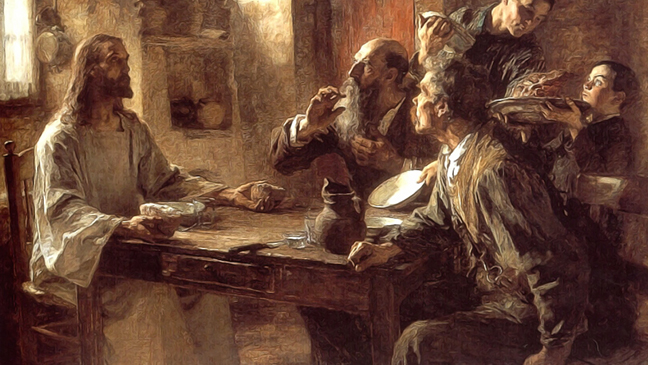
Bishop Robert Barron writes that today’s Gospel is one of the greatest stories ever told of the two disciples on the road to Emmaus. It is a story of the Church and its mission; therefore, it speaks to us all. On the day of the “new creation,” they are walking in precisely the wrong direction, away from Jerusalem. St. Josemaría Escrivá writes that in the course of their conversation with Jesus, the disciples’ mood changes from sadness to joy. The disciples didn’t get it at first. They didn’t get the Secret. The Mystery. The key. The pattern. And what was that? God’s self-emptying love, yes, even unto death. God’s act of taking upon himself the sins of the world in order to take them away, the Mystery of redemption through suffering. St. Gregory the Great said because those whom Truth was walking couldn’t be alien to charity, they invited him, a stranger, to be their guest. They set the table, brought food, and recognized in the breaking of the bread the God they did not know as he explained the sacred scriptures. The Lord was not recognized when he was speaking, but he deigned to be recognized as he was being fed. Jesus, at first, explains his mission with reference to the prophets, but then, he makes it as vividly present to them as he can; “He took the bread, pronounced the blessing, then broke the bread and began to distribute it to them.” And that’s when it all fell into place, and the puzzle was solved. The Eucharist made present this love unto death, which is more powerful than sin and death. The Eucharist was and is the key. This is the great Eucharistic action of the Church: Jesus offering his very self to us, presenting the drama of his death and resurrection sacramentally.
